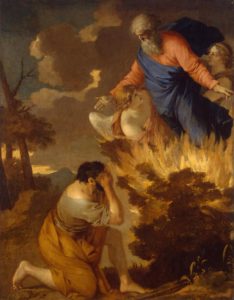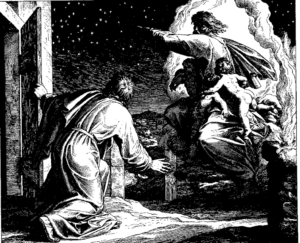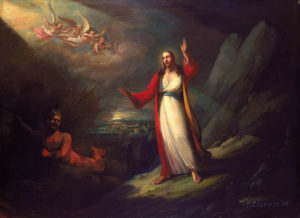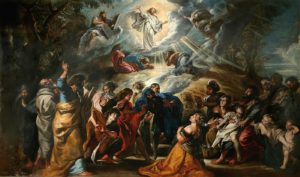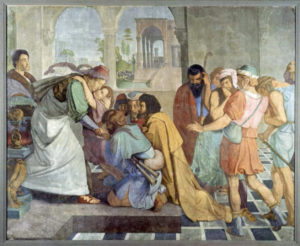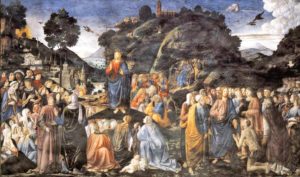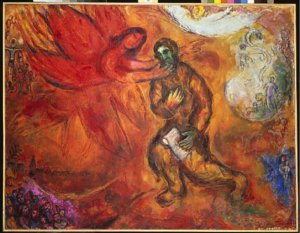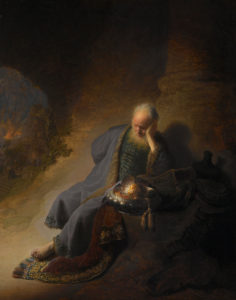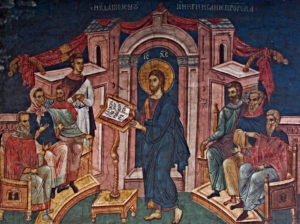Thoughts on Sunday’s Lessons for March 31, 2019
First Reading: Joshua 5:9-12
Fresh starts and new beginnings: These themes carry Sunday’s readings as we reach the midpoint of Lent.

Rembrandt and Saskia in the parable of the Prodigal Son (c.1635). Oil painting by Rembrandt Harmenszoon van Rijn (1606-1669). Gemäldegalerie Alte Meister, Dresden, Germany. (Click image to enlarge.)
From the Israelites’ arrival at the Promised Land in the first reading to the Prodigal Son’s joyful return home in the Gospel, we hear that God stays with us through transition and change. In our first reading, the people share the joy of reaching Canaan, the land of milk and honey. With no more need for manna, they celebrate the end of 40 years in the desert with bread made from the produce of the promised land.
Psalm: Psalm 32
Who hasn’t known the anguish of doing something wrong that hurt a loved one? An angry word, a careless act, and then we see that look of pain, a sob and burst of tears, and we feel anguish and guilt. At that point, there is just one thing to say: “I’m sorry.” When this simple response brings a smile and forgiveness, everything feels better. This is the reward of repentance: When we sin and step away from God, it hurts. But then, as we chant in this Psalm, God’s forgiveness and steadfast love can make us shout for joy.
Second Reading: 2 Corinthians 5:16-21
There is tension in Paul’s second letter to the people of Corinth. The people of this Greek Christian community have been arguing with Paul and with each other. Paul, loving them in spite of it all, entreats them to be reconciled to God on behalf of Christ. Our new direction as Christians, Paul tells them, comes when we recognize Jesus not only as human but as Christ, the Son of God, the Messiah. In Christ everything old has passed away. Everything has become new! Through Christ God forgives all our trespasses and reconciles the world to God.
Gospel: Luke 15:1-3, 11b-32
Everyone loves the parable of the Prodigal Son. But do we all hear it in the same way? If you are an older sibling, you may find it easier to relate to the older son’s reaction when his bratty brother came slinking home and got a feast. Like the loving father’s generous response to both sons, God’s nurturing grace is open to us all: Long-suffering good son and prodigal brother too. Page back and read the two short parables left out of the beginning of this Gospel: The shepherd who lost a sheep and the woman who lost a silver coin also rejoice when something that they lost was found. Should a father’s recovery of his lost son be any less joyful?

